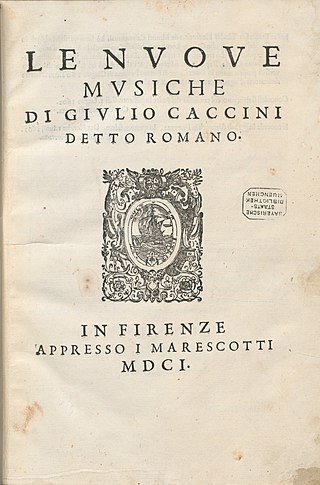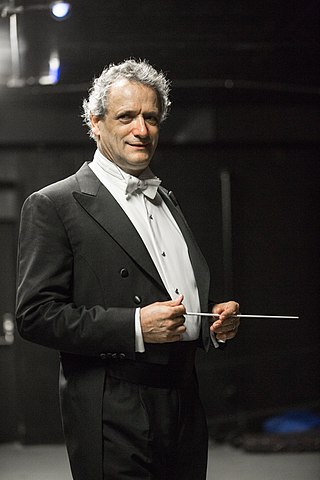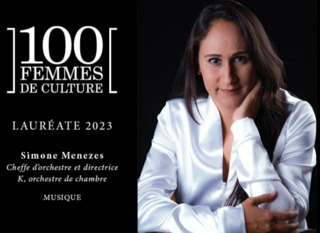Cristofano Malvezzi was an Italian organist and composer of the late Renaissance. He was one of the most famous composers in the city of Florence during a time of transition to the Baroque style.
The Florentine Camerata, also known as the Camerata de' Bardi, were a group of humanists, musicians, poets and intellectuals in late Renaissance Florence who gathered under the patronage of Count Giovanni de' Bardi to discuss and guide trends in the arts, especially music and drama. They met at the house of Giovanni de' Bardi, and their gatherings had the reputation of having all the most famous men of Florence as frequent guests. After first meeting in 1573, the activity of the Camerata reached its height between 1577 and 1582. While propounding a revival of the Greek dramatic style, the Camerata's musical experiments led to the development of the stile recitativo. In this way it facilitated the composition of dramatic music and the development of opera.

Giovanni de' Bardi, Count of Vernio, was an Italian literary critic, writer, composer and soldier.

Emilio de' Cavalieri, or Emilio dei Cavalieri, was an Italian composer, producer, organist, diplomat, choreographer and dancer at the end of the Renaissance era. His work, along with that of other composers active in Rome, Florence and Venice, was critical in defining the beginning of the musical Baroque era. A member of the Roman School of composers, he was an influential early composer of monody, and wrote what is usually considered to be the first oratorio.

Giulio Romolo Caccini was an Italian composer, teacher, singer, instrumentalist and writer of the late Renaissance and early Baroque eras. He was one of the founders of the genre of opera, and one of the most influential creators of the new Baroque style. He was also the father of the composer Francesca Caccini and the singer Settimia Caccini.

Leonidas Kavakos is a Greek violinist and conductor. As a violinist, he has won prizes at several international violin competitions, including the Sibelius, Paganini, Naumburg, and Indianapolis competitions. He is an Onassis Foundation scholar. He has also recorded for record labels such as Sony/BMG and BIS. As a conductor, he was an artistic director of the Camerata Salzburg and has been a guest conductor of the London Symphony Orchestra and Boston Symphony Orchestra.
Douglas Boyd is a British oboist and conductor.
Jerzy "Jurek" Dybał is a Polish conductor and soloist double-bass. Since 2013, he is the director of the International Krzysztof Penderecki Festival in Zabrze, Poland. Since 2014, he is the director of orchestra at Sinfonietta Cracovia in Kraków.
In the years centering on 1600 in Europe, several distinct shifts emerged in ways of thinking about the purposes, writing and performance of music. Partly these changes were revolutionary, deliberately instigated by a group of intellectuals in Florence known as the Florentine Camerata, and partly they were evolutionary, in that precursors of the new Baroque style can be found far back in the Renaissance, and the changes merely built on extant forms and practices. The transitions emanated from the cultural centers of Northern Italy, then spread to Rome, France, Germany, and Spain, and lastly reached England . In terms of instrumental music, shifts in four discrete areas can be observed: idiomatic writing, texture, instrument use, and orchestration.
Eduardo Alonso-Crespo is an Argentine composer of classical music.
The Camerata Salzburg is an Austrian chamber orchestra based in Salzburg, Austria. The Camerata's principal concert venue is the Mozarteum University.

The Manchester Camerata is a British chamber orchestra based in Manchester, England.
PieroStrozzi was an Italian nobleman and amateur composer.
The Boston Camerata is an early music ensemble based in Boston, Massachusetts. It was founded in 1954 by Narcissa Williamson, at the Museum of Fine Arts, Boston, as an adjunct to that museum's musical instrument collection.

Kayvan Mirhadi is an Iranian guitarist, composer, conductor and music educator.

Louis Langrée is a French conductor. He is the son of organist and theorist Alain Langrée.
Camerata de'Bardi may refer to:
A camerata is a small chamber orchestra or choir, with up to 40 to 60 musicians.
Jean-Michel Hasler is a French choral conductor, conductor, harpsichordist and musicologist.

Simone Menezes is an Italo-Brazilian conductor based in France.







